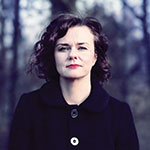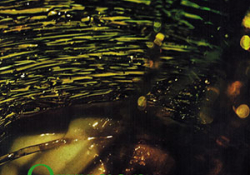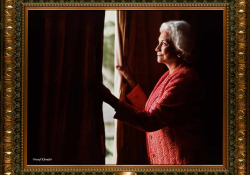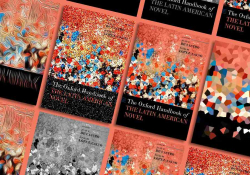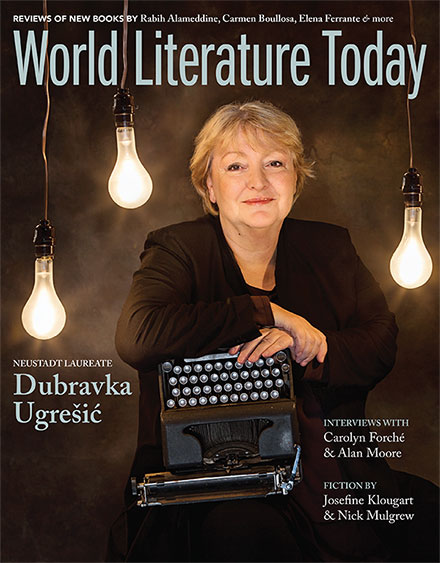Strangers in the Country of the Poet
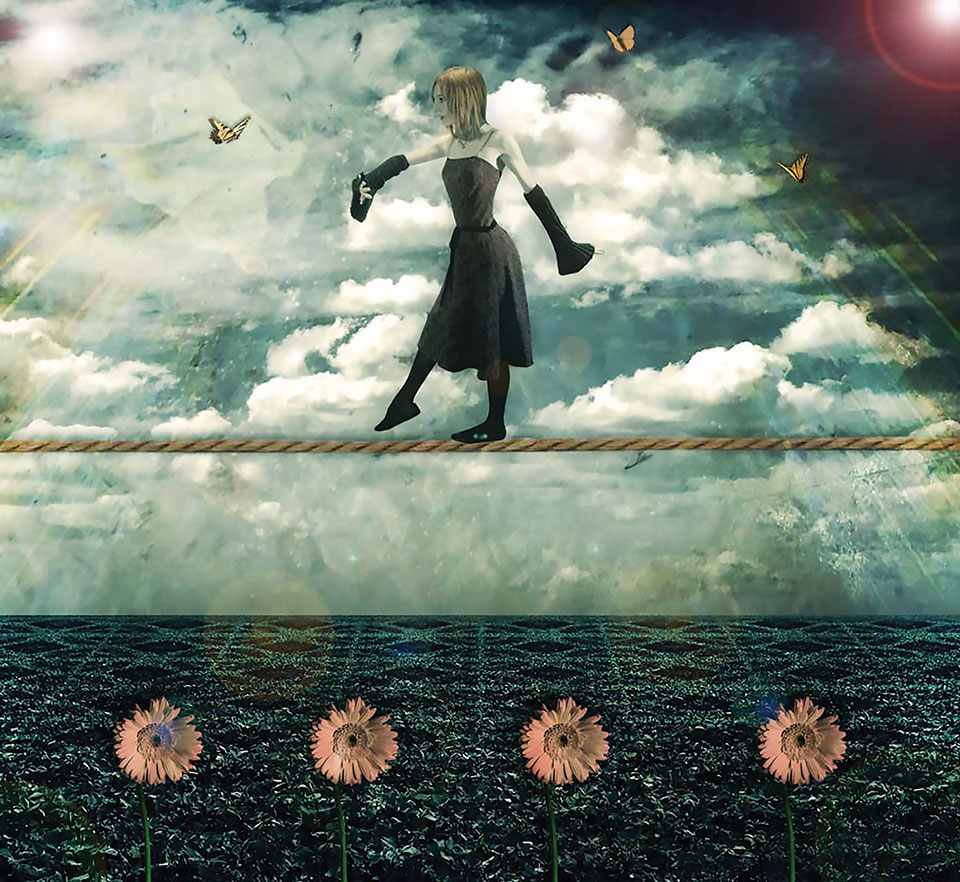
Against the background of the Polish parliament’s consideration of a law that would effectively ban abortion and the ensuing protests, Julia Fiedorczuk reflects on a particular aspect of women’s strangeness in contemporary Poland—their alienation from highbrow literary culture—which she finds especially conspicuous in the case of poetry.
1
“Women are strangers in the country of man,” wrote Laura Riding in the 1930s, as militant, nationalistic sentiments intensified across Europe. I read that sentence, along with Riding’s other writings on womanhood, as a graduate student toiling slowly on a dissertation about this remarkable poet’s work. In the context of turn-of-the century feminist theories’ tendency to complicate the notion of femininity, Riding’s pronouncement sounded a little archaic, if not downright mystical. After all, many women felt perfectly at home in that “country,” and many men did not. And who were those women, anyway, women in the plural, as opposed to the singularity of “man”?
Fifteen years later, in the fall of 2016, as I am sitting down to write this essay, a wave of protests moves across my country in reaction to a proposed new law under discussion in the Polish parliament that would effectively ban abortion. Women of various backgrounds and outlooks experience a powerful moment of solidarity. Even though the sense of female fellowship soon begins to fade as the protests evolve and diversify, with some women formulating more radical demands that other women find impossible to support, feminism, after years of dormancy in the ivory towers of academia, is back in the streets. Women rediscover the shared aspects of their experiences, often connected with humiliation, objectification, and silencing, all linked with male domination, represented in the present situation by the combined forces of right-wing government and the Catholic Church. In spite of all the differences, many women experience a similar sense of alienation in the world where massive antifeminist backlash accompanies a resurgence of aggressive nationalistic feelings. Since the nation-state is by its very nature militant, it must idealize violence. As much of our public discourse, and even some of our highbrow literature, extolls mythologized images of men with guns, women are pushed back to the niches of traditional femininity—to strangeness. Whether this collective experience will form the basis for a sustained and effective twenty-first-century women’s movement still remains to be seen, but one thing is certain: something happened in the past few months that caused many of us to (re)awaken.
Genius, national bard, witness, revolutionary: all these are traditionally masculine roles. In this context the products of female creativity are viewed, a priori, as trivial.
With these turbulent events in the background, I would like to reflect on a particular aspect of women’s strangeness in contemporary Poland, namely, their alienation from highbrow literary culture. This estrangement is especially conspicuous in the case of poetry. European poetry, as the domain of genius, has traditionally been dominated by men, reserving for women, at best, the roles of muses. While the identification of genius with male virility is universal, in the Polish tradition it is combined with an exceptional status of poets as the creators and keepers of national identity or, alternately, as rebels/revolutionaries. As pointed out by Czesław Miłosz, poetry’s high standing in our corner of Europe is due to the fact that it bears witness to “the extraordinary and lethal events that have been occurring there, comparable only to violent earthquakes” (The Witness of Poetry). Male witnessing is valued more highly than whatever might be reported by women, in keeping with the assumption that the battlefield is more important than the home. Genius, national bard, witness, revolutionary: all these are traditionally masculine roles. In this context the products of female creativity are viewed, a priori, as trivial. As long as they stay within the range of triviality, women writers are free to do what they want and can even become very successful. But only a very few will gain recognition as serious artists and thinkers, as intellectuals and poets whose work makes a real impact, an intervention into the spiritual (political, intellectual) shape of the world.
Thus, the riches of Polish women’s poetry remain largely undiscovered, though one might find in it alternatives not only to the mainstream poetic tradition but also to the dominant versions of history and selfhood. The work of Maria Komornicka (1876–1949), who at the age of thirty-one decided to burn all her female clothes and assumed the male name of Piotr Odmieniec Włast, shakes up the very institution of poetry. The ecstatic and angry lyrics of Zuzanna Ginczanka (1917–44), a poet of Jewish descent who was arrested and executed in Kraków shortly before the end of the war, writes the author’s singular existence into the vibrant rhythms of the cosmos, as if to challenge the brutal forces of history that cut her life short. The outrageous work of Anna Świrszczyńska (1909–84), who published her first collection of erotic poems at the age of sixty-six, discards conventional images of femininity and celebrates a nonidealized, mature, and sometimes even grotesque body. The sparse, intense, focused lyrics of Krystyna Miłobędzka (b. 1932) meditate on the transience of our constructions of selfhood and the violence of the ego:
strip yourself of Krystyna
of child mother woman
lodger lover tourist wife
what’s left is undressing
trails of discarded clothes
light gestures nothing more1
These are but a few examples of great female voices articulating various versions of selfhood, gender, and Polishness. It took me a long time to find them: Polish literary culture tends to marginalize and exclude the voices of women. For most of my own creative life, I have been a stranger in the country of man.
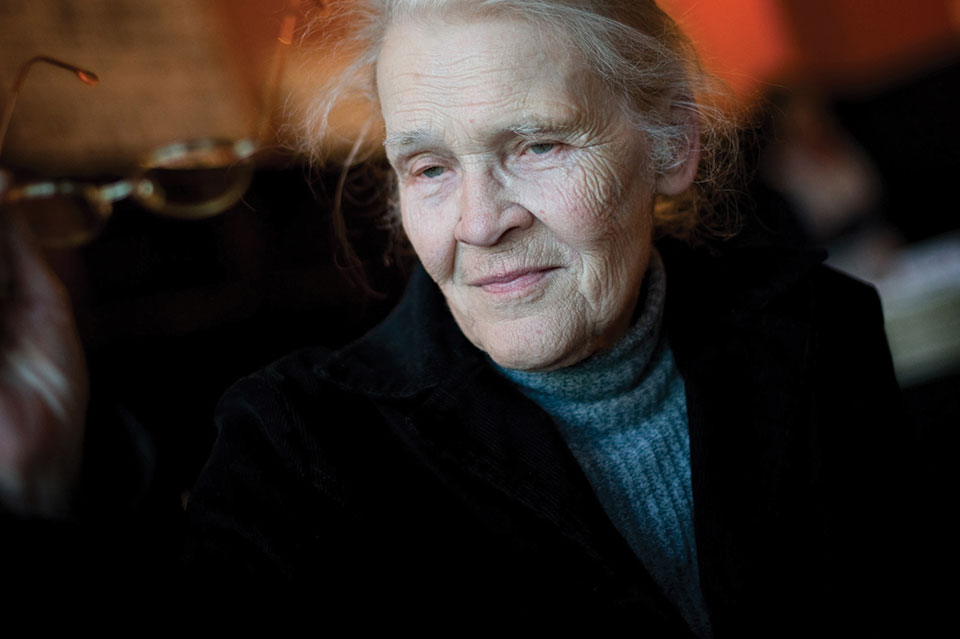
2
There can be no doubt that modern Polish poetry begins with Adam Mickiewicz (1798–1855). Mickiewicz is the Polish poet, par excellence. He is the author of a tale in verse considered the Polish national epic entitled Pan Tadeusz; the romantic drama Dziady, based on the ancient Slavic and Lithuanian feast commemorating the dead; as well as shorter lyrics, ballads, and sonnets that revolutionized Polish poetic diction. The almost untranslatable work of Mickiewicz is a blaze of genres. He introduces dialogues, elements of folklore (tales, songs, expressions), uncanny nature, and magic. His thirteen-syllable-long line, though perfectly regular, sounds completely natural, like speech, and his idiom is less exotic to present-day Poles than that of much early-twentieth-century poetry. At the same time, Mickiewicz is the main perpetrator of the most deadly element of Polish political mythology, namely, the lunatic idea that Poland is “the Christ of nations,” crucified by its enemies but destined to raise and become the Savior of Europe. The image of the nation rising Christ-like from the grave or like a phoenix from the ashes turned out to be extremely appealing in dramatic historical moments (those “comparable only to violent earthquakes”), which is perhaps proof of Mickiewicz’s poetic talent as well as of the world-transforming power of poetry (strong poetry is always political). But the enduring attraction of this image had very unfortunate consequences: a durable association of Polish national identity with martyrdom and Catholicism as well as a sense of the absolute uniqueness of the Polish fate are the most pronounced ones. Even as historical reality changed, the increasingly obsolete messianic myth lingered in the imagination of subsequent generations, ready to erupt in moments of crisis. As pointed out by Maria Janion, an outstanding critic of Polish and European romanticism, contemporary heroic representations of the Warsaw Uprising (1944), depicting death—including the death of children—as if it were an adventure, are proof of the longevity of that romantic myth. Tapping into this myth, contemporary right-wingers propagate an obsolete, death-obsessed, and strictly masculine form of patriotism. A symbolic transformation of Poland might therefore begin with a rereading of our romantic legacy.2
Returning to my main topic: even a very cursory examination of the place of women in Polish romantic poetry would merit a separate text. There are quite a few interesting female characters in the work of Mickiewicz (for instance, the main character of the long poem Grażyna, who is a warrior), but the role of the poet is always reserved for men. A conspicuous example of woman’s exclusion from the sacred realm of poetic creativity is to be found in a sequence of twenty-two love sonnets entitled Sonety odeskie (The Odessa sonnets). Among various faces of romantic love, mostly unfulfilled, as romantic love should be, we also find this one:
To . . .
You look into my eyes; simplicity
Is in your smile! Beware the serpent’s eye
Before its breath enfolds you and you lie
The victim of its deadly curse – then flee!
Sincerity alone is left to me:
Know that you stir within me when you sigh
A fatal fire; and yet I know not why
An innocent should share my destiny.
I love delight, yet never will deceive.
You are a child, with fervor unconsumed:
Your place is with the gay, while I am doomed
As passion’s thrall; amid the past I grieve.
Let thorn trees circle those by death entombed,
But ivy garlands round green poplars weave.
(Poems by Adam Mickiewicz, ed. George R. Noyes)
The poem is addressed to a female reader, whom it is trying to seduce. It is not simply an erotic poem; it is a poem that stages the event of poetry as erotic. The roles are thus clearly assigned: the poet (the seducer) is a man. The reader, the passive object of the poem’s operations, is a woman. The poet simultaneously lures the reader to come closer and pushes her away by presenting himself as dangerous, corrupt, in fact—poisonous. What is this mysterious poison? Sure enough, it is nothing else but his poetic genius. I want you, the poet says to the woman-reader (“you stir within me . . . a fatal fire”), but if you come too close, you might also be contaminated (“Beware the serpent’s eye / Before its breath enfolds you”). The poison, the darkness, the corruption—these constitute the poet’s attractiveness. Conveniently, they also keep the woman at bay, since the woman, as opposed to genius, is innocent to the point of being simpleminded. She belongs among ordinary people with their uncomplicated pleasures. She is a child, a green plant. A brush with genius might destroy her. The mysterious art of poetry is not for her gentle kind.
3
A similarly patronizing tone appears in Miłosz’s poem about Anna Kamieńska, concluding with the words: “She was not an outstanding poet but it is just, a good person will not master the ruses of art.” Like Mickiewicz, Miłosz associates the art of poetry with something poisonous, perhaps morally dubious. The woman’s task is to be a kind human being, not an artist. This ostensible valorization of the woman (as a better human to be envied) is in fact a denigration. The unspoken assumption by both Mickiewicz and Miłosz is that the gender of genius is male. One is reminded of Goncourt’s infamous epigram: “There are no women of genius; the women of genius are men . . .”
According to Miłosz, the greatest female character in all of Polish literature is Telimena from Mickiewicz’s Pan Tadeusz. Telimena is a mature woman, beautiful and elegant, who tries to flirt with the main character of the tale, the eponymous Tadeusz, and with several other male characters. Though attractive, Telimena is a comical figure, simply because she is too old for Eros. Like Mrs. Robinson from The Graduate, she must eventually lose to a much younger Zosia (her protégée). It is symptomatic that Miłosz, when writing about Anna Świrszczyńska, the only woman poet whom he truly respected and whose work he eagerly promoted both in Poland and in the US, used Telimena, a literary character created by a male poet, as a point of reference. Świrszczyńska was for Miłosz a “liberated Telimena.” This literary filter, the filter of male poetic gaze, was indispensable for Miłosz in order to come to terms with Świrszczyńska’s unruly femininity.
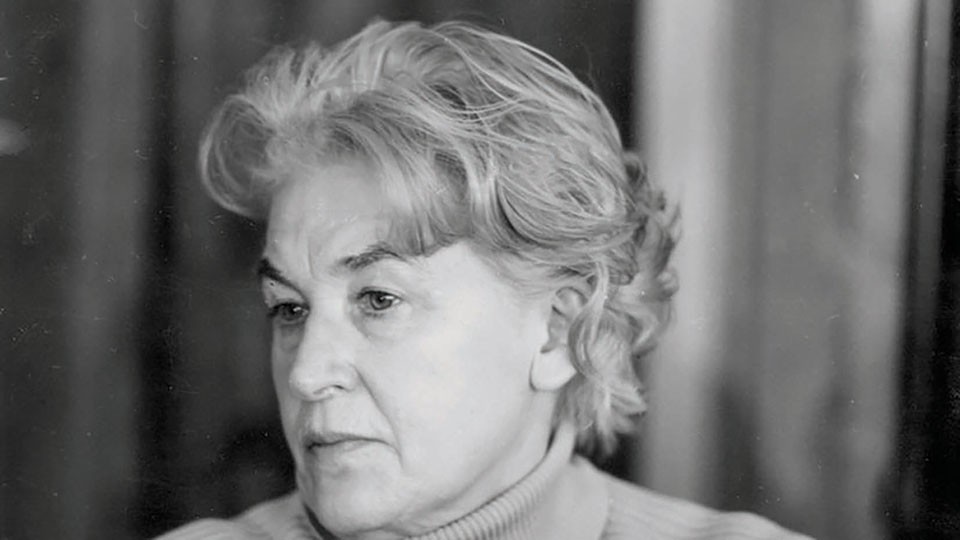
Anna Świrszczyńska debuted before World War II (Miłosz knew her at that time), but the outbreak of the war interrupted her career. She served as a nurse during the Warsaw Uprising. After the war she continued working, but her reputation in literary circles was not very strong until the publication of two seminal collections in the early 1970s: Jestem baba (1972; All woman)3 and Budowałam barykadę (1974; Eng. Building the Barricade, 1979). Poems from these books impressed Miłosz so much that he decided to translate some of Świrszczyńska’s work into English. In an extended essay he published after Świrszczyńska’s death, Miłosz attempted to come to terms with her unchecked celebration of mature female eroticism, a very direct treatment of the body and a particular sense of intimacy, of a different sort than the one practiced by confessional poets. But in praising Świrszczyńska’s achievement, Miłosz always made sure to underscore that hers was not, really, “feminine poetry.” Rather, it was an absolutely exceptional phenomenon:
The just evaluation of this volume requires of us that we get rid of many (masculine) habits and reconcile ourselves with the fact that this poetry is new, unlike what is referred to as “feminine poetry.” And if it is feminist, it is so only in a very special sense of the word. [. . .]
I have already said that this poetry is not what generally passes for “feminine poetry.” Yes, it is linked with “feminine poetry” through its autobiographical themes but what sets it off is a different use made of autobiography. Świrszczyńska is unlike any other poet from this century, in any case, unlike any American poet I know or any of the ones I translated into English.
While Miłosz’s credit in popularizing Świr-szczyńska’s work is unquestionable, his difficulties in accepting the woman poet on her own terms are symptomatic: he confesses to being “almost in love” with Świrszczyńska, as if standing up for her talent required such an emotional justification. In fact, through his loving gaze Miłosz had to create a slightly domesticated version of Świrszczyńska before he accepted her as his peer.4 Perhaps that is the reason why he repeatedly classified her as a “metaphysical poet,” a poet who lives outside the body like a medieval mystic. But here is Świrszczyńska herself, in a poem called “Grubieję z rozkoszy,” from her last collection (Szczęśliwa jak psi ogon, 1978; Eng. Happy as a Dog’s Tail, 1985):
I Grow Fat with Pleasure
When I sing
my throat grows fat with pleasure.
All of me
grows fat with pleasure.
I overgrow with the hot fat of existence
happy
like a hippo.
(trans. Piotr Florczyk)
“Singing,” perhaps referring to the “sacred” act of writing a poem, is presented as a sensuous, bodily, down-to-earth activity, as is often the case with women’s writing (simply because of the a priori exclusion of woman from the shrine of genius). Singing starts with the throat but subsequently engages the entire body. By no means is it the smooth and skinny body of a young model: it is a fattening body of an older woman, a “baba,” experiencing intense erotic pleasure. The comparison to a hippo at the end is humorous and even a little grotesque. But it also introduces a more-than-human, though by no means angelic, aspect of creativity and sex.
Miłosz hails Świrszczyńska as one of the most antiheroic poets of Polish traumatic history, a poet whose work is thus not easily incorporated into the messianic myth because it shows suffering without anesthesia.
Tellingly, the title of Miłosz’s essay on Świrszczyńska, Jakiegoż to gościa mieliśmy (What a guest we had), emphasizes her outsider status. A guest is someone who does not properly belong to this world, a stranger. One is tempted to ask, who are the “we” who had this guest? Men? Poets? The heirs of Mickiewicz? Miłosz’s Świrszczyńska was a stranger in the country of poets for whom the expression “a woman poet” is a contradiction in terms. However, there is one important aspect of Miłosz’s reading of Świrszczyńska with which it is impossible to disagree. Miłosz hails her as one of the most antiheroic poets of Polish traumatic history, a poet whose work is thus not easily incorporated into the messianic myth because it shows suffering without anesthesia. Certainly, “Ostatnie polskie powstanie,” the opening poem of Świrszczyńska’s book on the Warsaw Uprising (published almost thirty years after the event), leaves no illusions. There is nothing heroic or sublime about the massacre of a city:
The Last Polish Uprising
We lament the hour
when it all began,
when the first shot was fired.
We lament the sixty-three days
and sixty-three nights
of battle. And the hour
when everything ended.
When the place where a million people had lived
became the emptiness of a million people.
(Building the Barricade, trans. Piotr Florczyk, 2016)
Some say that there was a spontaneous matriarchy among the civilians in the ruined city during the uprising. Women, especially mothers, were the leaders—the one and only aim was to survive and to protect others, against the crushing odds.
4
In spring 2014 one of Poland’s leading daily newspapers published an article by a well-known critic in which the author lamented the condition of new Polish poetry, accusing the poets of having betrayed readers by producing work that is, on the one hand, too trivial and, on the other hand, too hermetic for most people to understand. In this critic’s view, nobody experiences genuine emotions when reading contemporary poetry, not like it used to be in the days gone by, when one could turn to the words of old masters and find in them the comfort for the “bleeding wound” at the bottom of our aching souls. New poetry is narcissistic and so completely divorced from our human “sweat” and “tears” as to be perfectly redundant; its spirit so lamentably shrunken that its only weapon—irony—serves to conceal its total inner vacuity.5 The few noble exceptions named in the article, the real poets among the young usurpers to the name, were placed under the auspices of Czesław Miłosz. In fact, it was Miłosz, the poet of genuine values, and not the younger authors, who was the true hero. The reason why I bring up this article now is because in sketching the situation of contemporary Polish poetry, it did not mention a single name of a woman.
That this outburst of dissatisfaction triggered a deluge of polemical responses (mine included) was hardly unpredicted. Its theses were symptomatic of a number of problems that come to the foreground as soon as one begins to reflect on Polish poetic tradition and on its relations with history and politics. By setting up two opposite camps, the author reiterated the somewhat tired opposition between the “traditionals” and the “moderns,” which shaped much of Polish literary and political history (not only in recent years). Mickiewicz was a rebel who stood up against the classics. The last big eruption of this conflict took place just after 1989 where the place of the “traditionals” was occupied by the poets associated with the so-called Polish school of poetry (Miłosz, Herbert, Zagajewski) and the place of the “moderns” by authors associated with the then avant-garde journal Brulion (Baran, Biedrzycki, Sendecki). Dubbed “the Brulion generation,” those poets contested the hieratic character of mainstream Polish poetry and its postromantic sense of mission and chose the everyday and the absurd instead. But the Brulion generation, like the Polish school of poetry before it, was almost exclusively male.6 In my polemic I was trying to demonstrate that the exclusion of women from the discussions of Polish poetry is not accidental; on the contrary, it is an integral aspect of Polish literary discourse, an inevitable outcome of the unspoken valorization of masculinity (through the figure of the poet-prophet or poet-witness). In other words, misogyny is part and parcel of a larger ideological construction that also includes the messianic myth.
So what exactly are those values that Polish poetry is supposed to embody, according to the traditionalist outlook outlined above? The incriminated article brings up the poem “Strukturalizm” (Structuralism), by Czesław Miłosz, to illustrate the essential conflict of values:
I was at a reading by a structuralist, he spoke extremely intelligently and his little French paws held a cigarette extremely intelligently.
I wanted to stand up and say: you, on this earth of howling and puke, on this tormented earth of every living creature and my human despair, you, scholar, scumbag. (Wiersze wszystkie, trans. Piotr Florczyk)
This certainly is not one of my favorite poems by Miłosz. I am quoting it only because I consider it symptomatic that this poem should be used by a traditionalist critic to illustrate the values he wishes to defend against ironists and experimenters. The poem stages a very simple opposition: between the intellectual sophistication of the Frenchman and the real suffering “in this land of wailing and vomit.” It is certainly not impossible to sympathize with the anger expressed in the poem, with the fury at the impotence of philosophy when confronted with the traumatic reality of starving, humiliated, slaughtered bodies. When poetry is understood as a form of witnessing, to hear that “life never does more than imitate the book” (Roland Barthes) must certainly be frustrating. Nevertheless, I find the poem’s attitude deeply troubling: the reason for this discomfort is the implicit sense of the superiority of the victims (the ones that experienced or witnessed suffering) over the intellectual who, the poem assumes, has not experienced anything. What else, if not the victim’s privileged status, might justify the violence of expressions such as “francuskie łapki” (French paws) or “świnia” (pig)? Miłosz was no nationalist. He very explicitly criticized Mickiewicz’s political ideas. But with this poem we are back in the all too familiar territory of Polish exceptionalism: linking Polish identity to a sense of trauma and martyrdom, demanding not only that Polish poetry be the witness to these things but also that the poetics of this witnessing conform to certain standardized norms (poems must be lucid; irony and ambiguity, or too much experimentation, are bad, etc.).
The idea of a more or less homogeneous poetics, of a poetic norm, when translated into political terms, becomes disquieting (certainly against Miłosz’s better intentions).
In fact, Miłosz even suggested that Polish poetic diction should be “stabilized,” using the language of Mickiewicz as the point of reference. Mickiewicz’s poetry would form a kind of rhythmical substrate, and all poetic “deviations” would then be deviations from that single norm—a somewhat surprising idea considering the revolutionary character of the older poet’s innovations (Ogród nauk). The idea of a more or less homogeneous poetics, of a poetic norm, when translated into political terms, becomes disquieting (certainly against Miłosz’s better intentions). Predictably, Miłosz was also very hostile to feminist revisions of language such as gender differentiation in formal situations, considering them as violations of language forms consecrated by tradition. The norm of Polish poetry would thus be a masculine norm. Experimentation and feminization are undesirable deviations.
5
In the meantime, and on the margins of loud literary quarrels, numerous women poets have produced work critical of mainstream historical narratives, of Polish monoculturalism, and of the accepted terms of literary discourse, and which reflects on such European and global issues as, for instance, the environmental crisis. Two anthologies of women’s poetry appeared in recent years in Poland: Solistki (The soloists, 2009) and Warkoczami (With braids, 2016) and, in the US, Karen Kovacik’s important Scattering the Dark: An Anthology of Polish Women Poets (2015; see WLT, Nov. 2016, 87). In the introduction, Kovacik speaks about the marginalization of Polish poetry by women, quoting some hard facts: “In seven recent anthologies, published in Poland, the United Kingdom, and the United States, women poets’ work comprised less than 15 percent on average.” My point is that this omission is not accidental but systemic, and it is this systemic omission that turns women, of various outlooks and aesthetic preferences, into strangers in Polish literary culture. The romantic coupling of poetry, politics, religion, and Polish national identity is a deep source of misogyny that lingers among the conservative members of the Polish school of poetry but also among some of the opponents of that school, because the poetic battles are fought according to the same old patriarchal paradigm. According to Kovacik, women poets are not as “rejectionist” as their counterparts from the “men’s club” (Benjamin Paloff’s expression) of Polish poetry are. Perhaps that is true, but it would be hard to speak about a continuous female tradition in Polish poetry because most of the poets work in relative isolation, struggling their way through the country of the poet—be it Mickiewicz, Miłosz, Herbert, or Świetlicki. As I stated at the beginning of this essay, for most of my own writing life I also lived in this country.
Kovacik’s anthology presents the work of thirty-one poets born between 1909 and 1985 and is divided into several sections. The first section, “Lifting the Veils of History,” is comprised of poems that present, in the editor’s formulation, “apocryphal perspectives” on Poland’s complicated history, though most of the poets in this section are relatively well established (Szymborska, Hartwig, Lipska) and practicing rather conventional poetics. The section opens with Szymborska’s famous poem “The End and the Beginning.” The poet moves the focus away from the heroic images of a romanticized battlefield to the postwar landscape of destruction and rubble, which has to be “tidied up” (“so that carts loaded with corpses / can get by”). The “tidying-up,” traditionally a female function, is not spectacular, so by this time “the cameras have gone / to other wars.”7 In turn, excerpts from Bożena Keff’s famous A Piece on Mother and the Fatherland address the experience of a Holocaust survivor who discovers after half a century that her mother was executed in a forest outside Lvov. She desires to share this discovery with everybody, including her daughter (compared to cartoon character Lara Croft), but the daughter only has stock expressions of sympathy at her disposal (“How horrible!”).8 Keff’s work demonstrates the prolonged consequences of trauma in the intimate sphere of the mother-daughter relationship. Other sections in the anthology bear the following titles: “In the Theater of Dreams,” “Reimagining the Bard,” “The Ironic Art of Poetry,” “Gallery of Myths and Masks,” “Transitions, Transformations,” “The Domestic Arts,” and “Curating Objects.” Younger and lesser-known poets presented include Joanna Lech, Agnieszka Mirahina, Joanna Mueller, and Katarzyna Ewa Zdanowicz.
By seriously considering the poetries written on the outside of that myth, we could begin to dismantle some of the most obsolete and destructive elements of Polish intellectual culture.
The three anthologies mentioned above demonstrate the power of women’s poetry to subvert received aesthetic and political values and the accepted terms of critical discourse. Certainly, not all of this poetry is radical, but the fact that it is written from the perspective of strangers gives it critical power. The ones in the mainstream write the official myth; the marginalized ones perceive its limitations. Following Maria Janion, I believe that Poland needs a symbolic transformation. Considering the huge role of romantic poetry in shaping our collective imagination, I think that by seriously considering the poetries written on the outside of that myth, we could begin to dismantle some of the most obsolete and destructive elements of Polish intellectual culture. This transformation is our responsibility now; it is the responsibility of writers, artists and intellectuals, women and men, to work for this change.
Izabela Morska’s poem “Madame Intuita” (included in Kovacik’s anthology) can be read as a comment about the situation of an outsider, a stranger, in relation to a dominant culture. Mainstream culture is presented as a country or a nation, and the stranger is someone who, in spite of attempts to assimilate, cannot get rid of a foreign accent:
My whole life’s like learning a second language –
so many immigrant sacrifices but in the end
I can’t get rid of this accent, recognized
everywhere to my annoyance.
And I’d been feeling almost assimilated!
All that effort, and for what?9
The fragment might be interpreted as a metaphorical representation of the situation of women in mainstream poetic culture. However hard she tries to assimilate, she will never fully belong to the “man’s club” of poetry that matters.
The eponymous “Madame Intuita” is clearly a response to Herbert’s “Mr. Cogito.” As pointed out by Kovacik, “Mr. Cogito” was supposed to stand for an “anarchic intellect” that could not be controlled by the Communist regime. But the anarchy of “Mr. Cogito” was limited, for instance by the Cartesian understanding of human subjectivity. Though in theory gender-neutral, Descartes’s Cogito was, in fact, male, and so is Herbert’s “everyman.”
In contrast, Madame Intuita is a wilder creature. Her lineage is not very clear, though of course she has some (which includes feminine and masculine predecessors, also Mr. Cogito). She has neither a single mother whose values she could inherit, nor a single father who could teach her about poetic norms:
You could call this a “mother tongue”
but I don’t have a mother, only a handful
of old wives’ tales and myths: watch the distracted
woman dancing on a tightrope – will she fall?
Let us hope that she will not fall. Instead, she will collect fragments of “letters” and “stories broken off.” She will “tie up loose ends” and “restore lines” with her pen. But the lines will not be rigid, and the history emerging from the scattered fragments will not be tyrannical. Perhaps only strangers—strangers of all genders—can write this kind of multiple history, the one needed to counterbalance the heroic myth. In the words of Morska’s poem, the other language, the one opposed to the official discourse of the nation, is “like water.” Water is soft and fluid but, let us not forget, through persistence penetrates stone.
Warsaw
[1] Translated by Elżbieta Wójcik-Leese in Scattering the Dark: An Anthology of Polish Women Poets, ed. Karen Kovacik (White Pine Press, 2015), 169.
[2] Maria Janion has written extensively about the subversive features of what she labels as “existential” romanticism, such as its emphasis on individual freedom and dreams of revolution, and its exploration of spirituality that does not necessarily have anything to do with religion. One finds these subversive features in Mickiewicz, too, but they are not the ones that have entered our cultural and political mainstream. The great project of a symbolic revolution, initiated by Janion, has not yet been carried out.
[3] I repeat this English translation after Renata Ingbrant who, in turn, takes it from Celia Hawkesworth’s book A History of Central European Women’s Writing (2001). But the word baba used by Świrszczyńska is of a different register than “woman.” It is coarse, even ribald, it evokes the kind of femininity that is the very opposite of ladylike. Miłosz translates this title simply as “I am a woman” and shortens Świrszczyńska’s name, unpronounceable to English-speakers, to “Swir” (which was in fact her wartime nickname).
[4] Świrszczyńska scholar Renata Ingbrant goes so far as to compare the relationship between Miłosz and Świrszczyńska to that of Professor Higgins and Eliza Doolittle from Bernard Shaw’s Pygmalion. Ingbrant also notes that Miłosz’s translations domesticate Świrszczyńska’s poetry and make it more polite (From Her Point of View, 78–94).
[5] Andrzej Franaszek, “Dlaczego nikt nie lubi nowej poezji?” Gazeta Wyborcza, March 21, 2014.
[6] An anthology that represented this period for American readers, Carnivorous Boy, Carnivorous Bird, included one woman.
[7] Wisława Szymborska, “The End and the Beginning,” trans. Stanisław Barańczak & Clare Cavanagh, Scattering the Dark, 28.
[8] Bożena Keff, “Lara Croft,” trans. Benjamin Paloff & Alissa Valles, in Scattering the Dark, 37.
[9] Izabela Morska, “Madame Intuita,” trans. Karen Kovacik, Scattering the Dark, 112–13.
